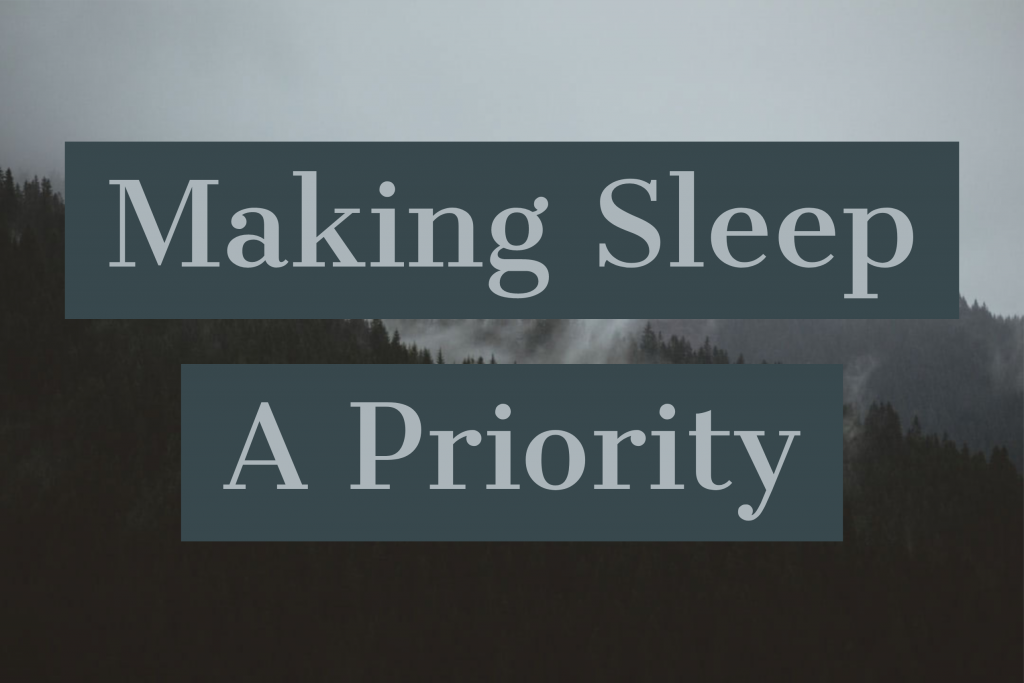Foundation, this “inconvenient truth” is termed “sleep efficiency”, Quality sleep, the true foundation on which one is able to maintain and/or restore and preserve our health, is often overlooked. An important priority for millions of people, is an improved wellness and health — and rightly so, for what do we really have left without it? Because of what many call “everyday life”, I feel certain I am right in saying this much needed quality sleep is often relegated to the bottom of our list of priorities.
Despite sleep deprivation being an associated risk factor in a host of other chronic conditions, such as high blood pressure, stroke, heart disease, frequent mental illness, diabetes, and obesity, an estimated one of every three Americans are not getting the recommended nightly sleep of at least seven hours.
So, when we don’t get enough sleep, what are we really giving up?
Sleep and the Brain
Long term and short term sleep deprivation can quickly take a mental toll, because quality sleep plays such a pivotal total. The brain’s vital functions, which are mental well-being, memory, and focus, are all unknowingly being compromised by too many late nights, and sleeplessness. Which makes people more susceptible to depression and other maladies such as Alzheimers.
These are a few ways that good brain function can be affected by excessive sleeplessness.
- Levels of hormones: The key hormones involved in the regulation of energy levels and mood, and in the thinking process, are cortisol, dopamine, and serotonin. So, sleep deprivation can throw your hormones into dysregulation and disarray.
- Making decisions: The center for decision making is the prefrontal cortex of the brain, and sleep deprivation directly affects it, causing people to behave impulsively.
- Depression: Most of us probably know that a sign of depression can be consistently poor sleep, but you may not know that your chances of developing depression can be increase due to a lack of sleep. There is a strong correlation between major depressive disorders and insomnia, particularly among young adults.
- Brain disposal of waste: Your brain undergoes the massively important work of disposing of clumps of protein, which is cleaning itself, while you sleep. In the worst cases, toxic levels of protein can accumulate in the brain of a sleep deprived person.
- Memory: Sleep deprivation deprives the neural cells of our brain from its’ normal ability of translating into thought the visual information it absorbs, according to a study conducted by the University of California Los Angeles (UCLA). In other words, it causes delays in visual perceptions, and in memory, by disrupting the cell’s ability to communicate with each other. Since the memory storage process for long-term recall occurs during our sleep, sleep deprivation also harms that memory recall.
- Productivity and concentration: Without the proper amount of sleep, your optimum productivity dwindles, reaction times slowdown, and normal attention span is compromised. It is obvious that a well-rested brain is necessary for optimal productivity and concentration. The greater, and more dangerous risks of not making sleep a top priority are workplace and automobile accidents!
The Body and Sleep
- Gaining weight: Chances are that you will be trying to satisfy greater hunger, by reaching for comfort foods that are more fatty, when you haven’t had enough sleep. You are trying to supplement from the lost energy you should be getting from the proper amount of sleep. To make matters even worse, you’ve lost the motivation to exercise, due to your mental exhaustion.
- Proper immune system function: In order to properly do its’ job and protect us, our immune system has to have good, quality sleep. We are much more prone to infection and illness, or in the ability to quickly recover from such, when we have been sleep deprived.
- Athletic performance: When it comes to “getting your head in the game”, a good, quality night of sleep makes a drastic difference, whether you are actually an athlete, or simply an aspiring athlete. The functions necessary for athletic performance, that are either hindered or supported by the extent to which you make sleep a priority, make up a long list. They are: (1) Your sprint times and accuracy are better (2) Your mental errors are fewer (3) your reaction times improve (4) your injury rates are lower (5) your focus is better
- Type 2 diabetes: The research is compelling that those who are habitually deprived of quality sleep are more likely to develop type 2 diabetes, and thus should certainly make sleep a priority in their lives!
- A healthy heart: People who suffer sleep deprivation are unnecessarily taxing their hearts, and maintaining higher blood pressure levels for longer periods of time, thus raising their risk of strokes and heart disease. During times of quality sleep, your blood pressure levels drop, giving your heart a much needed reprieve from normal daily stress factors, so it is definitely true that heart-health, and quality sleep go hand-in-hand.
The Quality of Sleep vs. the Quantity of Sleep
Here is an inconvenient truth…Sleep quality is not synonymous with sleep quantity! Are you ready for that? According to the National Sleep and the signs it produces can be readily identified: (1) Waking up no more than once per night (2) Being awake for no more than 20 minutes during the night, after having fallen asleep (3) Taking no more than 30 minutes to fall asleep initially (4) Sleeping no less than 85% of the time, after going to bed for the night
If you are ready to make sleep a priority, or you need additional information on how you can have a greater quantity of “quality sleep”, please give our office a call.

